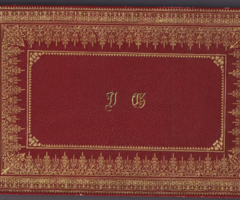
Pauline VIARDOT
1821 - 1910
Composer, Pianist, Mezzo-soprano
As the daughter of the Spanish composer and tenor Manuel García and the soprano Joaquína Sitchez, the future mezzo-soprano Pauline García – born in Paris – was propelled into the limelight at an early age. From 1825 onwards, she toured the United States and Mexico with her parents, her brother Manuel and her sister, Maria (who became ‘La Malibran’). The musical education she received from her family was complemented by piano lessons with Liszt and Charles Meysenberg and composition lessons with Reicha. When Maria died, Pauline – who had been intending to pursue a career as a pianist – opted for singing instead: she made her debut in 1837, toured Germany in 1838 and made her operatic debut first in London in 1839, then in Paris. Her first mélodies date from this period. In 1840, she married Louis Viardot, who became her impresario. A friend of Ivan Turgenev and George Sand, she composed operettas to librettos by the former (Trop de femmes; L’Ogre; Le Dernier Sorcier) and inspired the latter to write the novels Consuelo and La Comtesse de Rudolstadt. Pauline Viardot’s creation of the role of Fidès in Meyerbeer’s Le Prophète (1849) placed her at the centre of European musical life, a position consolidated by the lively salons she held in her various cities of residence. She enabled Charles Gounod to make his debut at the Paris Opéra (Sapho, 1851), collaborated with Hector Berlioz on his rediscovery of Gluck (Orphée, 1859; Alceste, 1861) and lent her support to Saint-Saëns, Fauré and Massenet when they were starting out in their careers. Her crowning achievement as a teacher was her appointment as professor of singing at the Paris Conservatoire (1871-75).
Focus
Focus
Compositrices
Videos
Scientific publications
Publication













